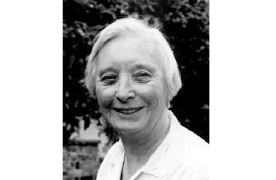A very interesting conversation between a law librarian and AI discussing the Moys classification system and questioning about who and how it was developed.
It harks back to what i was saying about that silly and lazy McKinsey report last week about lots of information people losing their jobs.
Biggest Losers of AI Boom Are Knowledge Workers, McKinsey Says
As evidenced by this conversation it is the questioning human mind that slowly drives a closer version of the truth out of AI
Unlike the lazy lawyer that hit the headlines a few weeks ago who did not understand that to use the tool one must interrogate and elict better answers with a better line of questioning and yes who’s best at those questions?
That’s correct, the information worker.
I would also suggest that it is also a perfect example of history written by men, code written by men and now AI envisaged by men all of which combine to give male answers.
One human mind and a few keystrokes is all that is needed to make the AI question itself and dig deeper for the “truth”

This is one of the best posts i’ve seen on AI this year
Here’s the introduction, please make sure to read the full article it talks about many issues on a number of levels …
I would hope this is submitted to the LRB for publication
We all have some kind of understanding of what classification is, whether its standardised schemes such as Dewey, hive-mind tagging online, (wasn’t del.icio.us beautiful?) or even just relating a bunch of stuff together because reasons. Whilst Dewey is probably the most renowned library scheme, there are many classification schemes out there catering to the specifics of the materials to which they are applied.
At Middle Temple Library we decided a few years ago to start using the Moys Classification Scheme, specifically intended for legal materials. Moys was conceived in 1968 by librarian Elizabeth “Betty” Moys, designed to fit into the K class of LCC (the Library of Congress Classification scheme).
Its aim was to expand beyond what LCC had on offer for the subject of law, offering better granularity when it came to classifying legal materials. The last edition was published in 2012, so it’s due a nice chunky update in some areas.
Artificial Intelligence is one of those areas. Moys classifies works on AI at K103, but only in the context of AI as a legal tool and not as an area of legislation. Who could predict in 1968 the kind of legal issues uses of AI could come to present? Betty Moys definitely would not have foreseen lawyers including made up case law generated by AI or judges having to issue orders for the mandatory discloser that no AI generated material has been filed in a case.
Full Post at
Or you could go to wikipedia and get the answer straight away!




